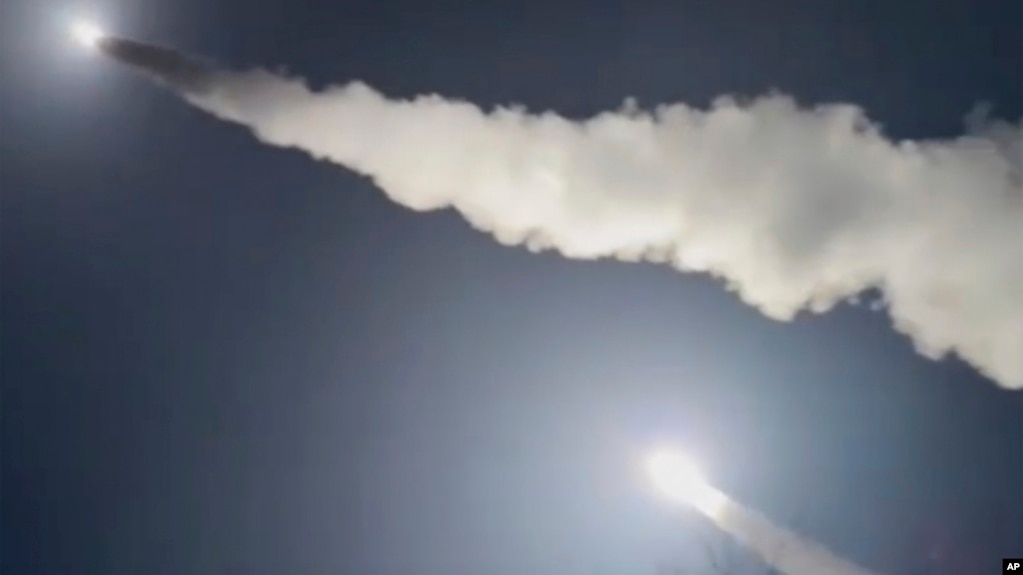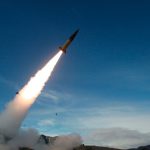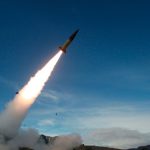
This image was made from a video posted by a Telegram channel affiliated with the Ukrainian military on Nov. 19, 2024. The channel says it shows U.S.-supplied ATACMS missiles being fired from an undisclosed location in Ukraine. (Lachen Pyshe Telegram via AP)
Ukraine said Tuesday it hit ammunition warehouses in the Bryansk region of Russia in a predawn strike, an attack the warring sides said for the first time involved the deployment of long-range U.S.-supplied ballistic missiles.
The two sides disputed the effectiveness of the attack, which came two days after it was reported that President Joe Biden had reversed U.S. policy and approved use of the longer-range missiles as Russia’s invasion of Ukraine reached the 1,000-day mark.
Two U.S. officials confirmed to VOA on Tuesday that the policy prohibiting Ukrainians\’ use of U.S.-provided long-range weapons to hit military targets deep inside Russia “has changed.” Pentagon deputy press secretary Sabrina Singh on Monday declined to confirm the change, while adding that Moscow has no grounds for any complaints.
“What\’s adding fuel to the fire is the fact that DPRK [Democratic People’s Republic of Korea] soldiers are now entering a fight,” Singh said, in response to a question from VOA.
The Russian defense ministry said in a statement, “Ukraine’s armed forces last night struck a facility in the Bryansk region” with six U.S.-made Army Tactical Missile System rockets, or ATACMS, but its forces shot down five of them and damaged the sixth. It said falling fragments from the exploding rockets caused a fire at the military facility, but there were no casualties.
Ukraine’s military general staff said in a post on Facebook that its forces had “caused fire damage” to “warehouses with ammunition for the army of the Russian occupiers” in Bryansk, about 100 kilometers from Ukraine’s border.
The attack caused “12 secondary explosions and detonations in the area of the target,” the statement said, while not specifying that ATACMS had been used. But a Ukrainian official, speaking on condition of anonymity to discuss ongoing operations, confirmed the use of the American weapons system.
The initial target using the long-range missile system was far short of the 300-kilometer range of the missile system. Ukrainian President Volodymyr Zelenskyy had long sought U.S. approval of its use to launch attacks on military sites deep inside Russia. Until Sunday, though, Biden had resisted for fear of escalating tensions in the nearly three-year conflict between Moscow and the U.S.-led NATO military alliance, four of whose member countries border Russia.
Biden reportedly reversed his position after North Korea sent about 10,000 troops to Russia to fight alongside Moscow’s forces in Russia’s Kursk region that Ukraine captured in August and still holds.
Rescuers work at a residential building hit by a Russian drone strike in the town of Hlukhiv, Sumy region, in this handout picture released Nov. 19, 2024. (Press service of the State Emergency Service of Ukraine in Sumy region/Handout via Reuters)
On the battlefront in Ukraine, an overnight Russian drone attack in the northeastern Sumy region killed eight people, including one child, Ukrainian officials said.
The attack on a residential building in the border town of Hlukhiv also wounded 12 people, including two children, Ukraine\’s national police force said on Telegram. The strike was part of one of the largest Russian drone and missile attacks in months.
Ukraine\’s air force said on Tuesday it shot down 51 out of 87 drones launched by Russia overnight.
Ukraine’s minister of foreign affairs, Andrii Sybiha, said at a U.N. Security Council meeting that “Russia must be forced to negotiate,” calling the attack “Russia’s response to visits by certain officials and to specific phone conversations” that have called for peace.
“That response was one of the most massive strikes on our territory. Therefore, the answer must be peace through strength,” he added.
Tear gas detected near front line
Also on Tuesday, Ukraine urged action after the international chemical weapons watchdog said banned CS riot control gas, also known as tear gas, had been found in Ukrainian soil samples from the Dnipropetrovsk region.
Russia has not reacted to the report by the Organization for the Prohibition of Chemical Weapons, which did not assign blame for the chemical.
The Chemical Weapons Convention strictly bans the use of riot control agents including CS outside riot control situations when it is used as “a method of warfare,” Agence France-Presse reported.
CS gas causes irritation to the lungs, skin and eyes.
Both sides have accused each other of using chemical weapons in the conflict, and Ukraine’s Western allies have claimed Moscow has employed banned weapons.
“Russia\’s use of banned chemicals on the battlefield once again demonstrates Russia\’s chronic disregard for international law,” a statement from Ukraine’s foreign ministry said.
The OPCW stressed, however, that the report did “not seek to identify the source or origin of the toxic chemical.”
Carla Babb, Jeff Seldin and Patsy Widakuswara contributed to this report.
By:VOA


